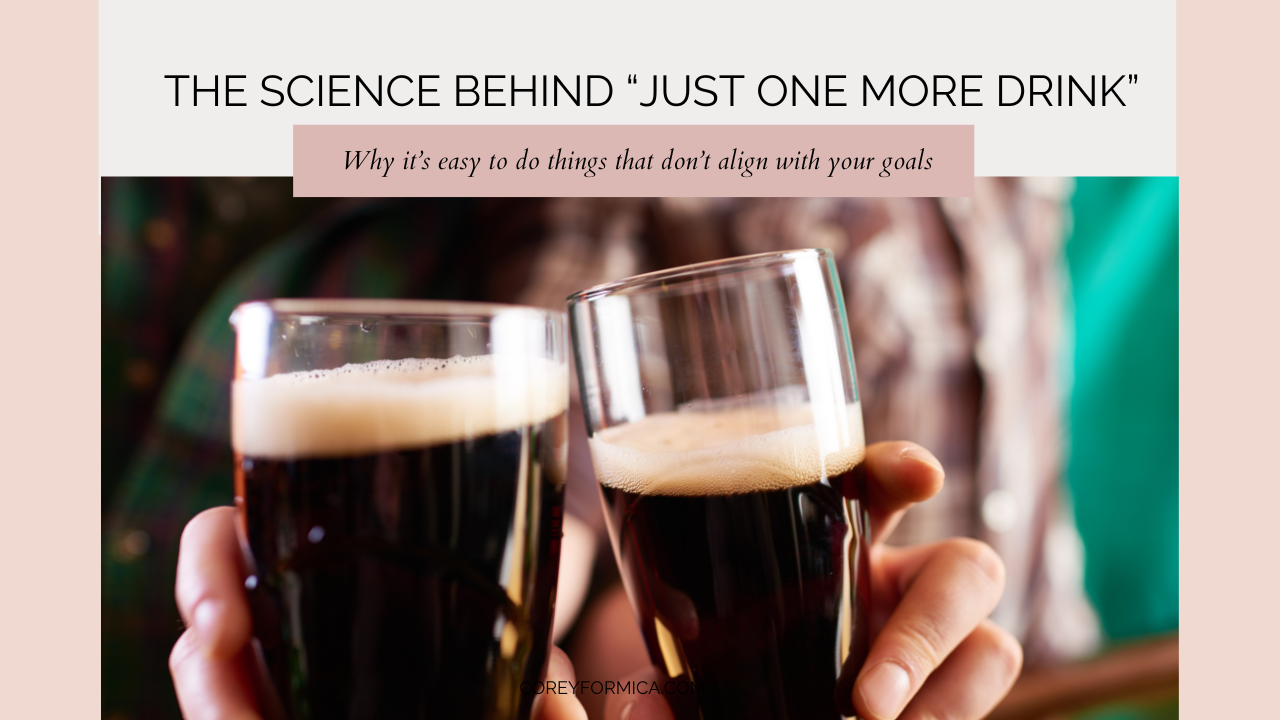
Let’s talk about the science behind why we keep doing things that don’t actually feel good — like eating dessert when we’re already full, or drinking something we don’t even enjoy.
I got back from a wonderful holiday in Ireland a little over a week ago.
The trip was beautiful — rich in culture, rolling landscapes, friendly people (and LOL yes a lot of rain too). But it also became an unexpected masterclass in how the nervous system pulls us toward behaviors that don’t serve our goals — simply to help us feel like we belong.
This was my first trip to Ireland, and my first visit to Europe in decades so I had booked a group bus tour for my travels. For 8 days, I travelled through Irish cities and the countryside with a coach bus full of tourists from Canada and the United States. Many of our dinners were included as part of the tour package, and those nights on the tour at the restaurant for dinner, a dessert showed up at the table.
I didn’t want it. I wasn’t hungry.
And yet — most nights, I ate it.
Same with the Guinness. I don’t drink beer at home. I don’t even really like beer.
But on that trip? I ordered it. Drank it. More than once.
Why?
Because the nervous system doesn’t care about your long-term health goals.
It cares about safety — and to your nervous system, safety means fitting in with the tribe.
This isn’t metaphor. It’s evolutionary biology.
Thousands of years ago, being part of a group meant survival. Standing out — or saying no — risked exile, and exile meant death. That wiring is still active today. It’s subconscious. It’s fast. And it doesn’t pause to ask whether Guinness fits your macros or your financial values.
Instead, it reads the room — and your body responds accordingly.
And this trip? Was a masterclass in group conformity.
There was a full pub crawl built into the tour — a curated series of “famous” spots, all promising the best pints of Guinness in Dublin. One of the stops even taught us how to pour the perfect pint.
Souvenir shops were stocked with Guinness-branded everything — shirts, glasses, tote bags, chocolate. The Guinness brewery itself is one of the top-rated tourist experiences in Ireland.
So of course my hand went up when it was time to order a round.
Of course I said yes, even though my body and my goals said no.
Because the entire environment whispered:
“This is what we do here. Don’t miss out. Be part of it.”
Same thing with dessert.
Beyond the social expectation of “everyone else is eating it,” there was a quieter script running in the background — one that dates back even further:
“Finish your plate. Don’t waste food. You don’t leave the table until it’s done.”
That message — coded into so many of us during childhood — is stored in the nervous system.
So even though I wasn’t hungry…
Even though dessert didn’t support my current goals…
Even though my adult self knows better…
My body defaulted to safety — through sameness, through compliance, through following rules that no longer serve me.
This is the real science behind self-sabotage.
It’s not about being lazy or undisciplined.
It’s about a nervous system doing exactly what it was wired to do: protect you.
Even if that means choosing short-term comfort over long-term alignment.
But here’s the good news:
Once you see the pattern, you can change it.
Not by pushing harder, but by retraining your nervous system to feel safe — even when you’re making a different choice.
You can say:
“No dessert for me tonight, thank you.”
“I’m good without the pint.”
“I already feel like I belong.”
And mean it.
If you’re ready to stop fighting yourself and start understanding what’s really behind your patterns, let’s talk. I offer one on one coaching to identify the patterns running quietly in the background which are causing your self sabotaging behaviours and give you the tools so that you can get your subconscious programming working for you instead of against you.
Get more great tips
Grab my FREE guide on 5 thing things you can start doing right now to stop self sabotage and improve your life!

